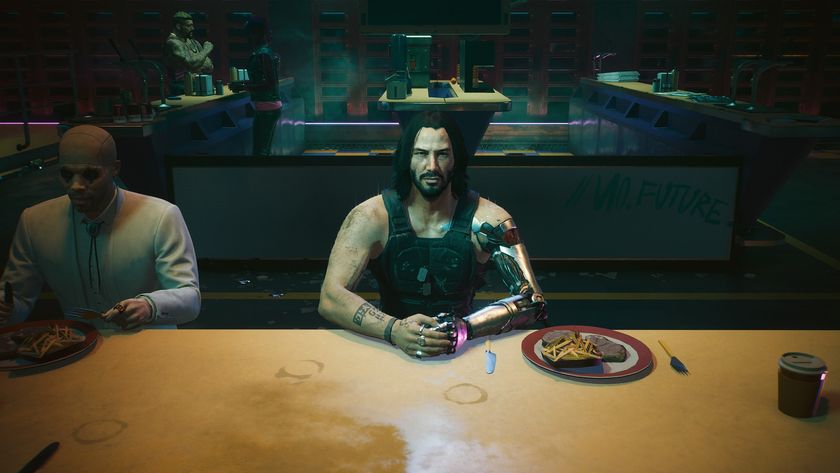The Last of Us 2 had the perfect ending, it just didn't know it
Naughty Dog tried to tell a nuanced story but couldn't avoid a video game tropes
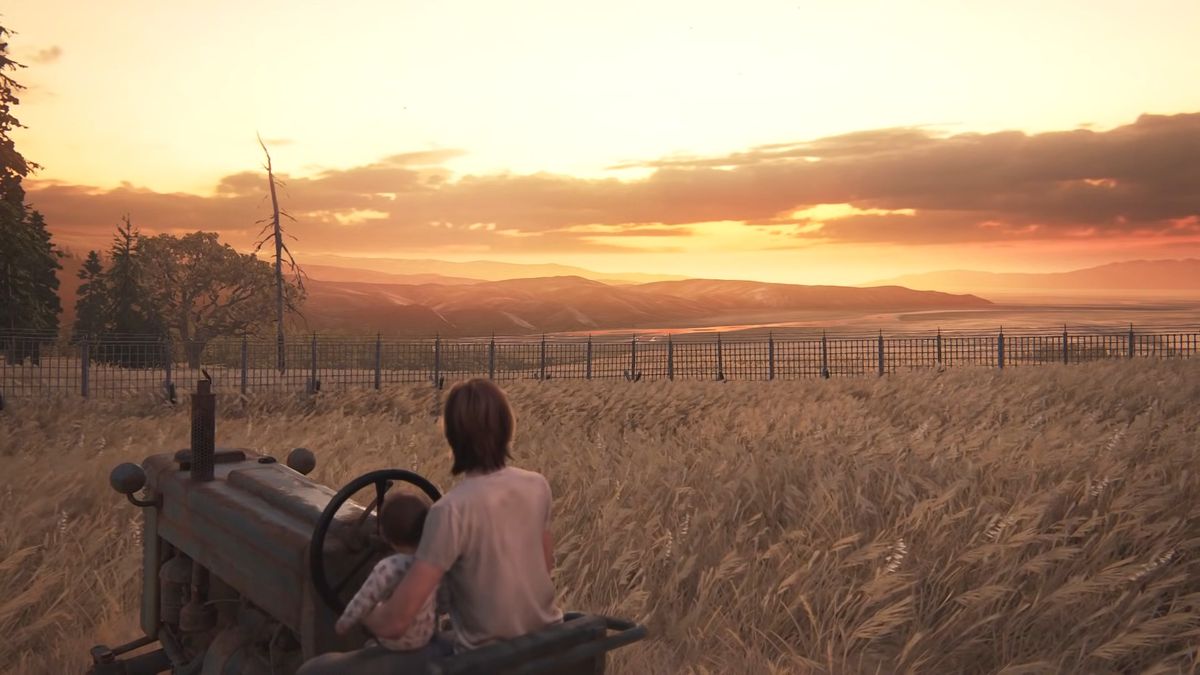
It's been three years since The Last of Us 2 released, and while plenty has been said, there hasn't really been a good conversation about just how much Naughty Dog woofed the ending. Or rather, how they had the perfect ending to a complex and nuanced story, but threw it away for the video game closure of a boss fight that might as well have flashed 'You Win' on-screen before the credits.
SPOILER WARNING: Just in case you haven't played The Last of Us 2 yet, this article will go into details on the events and themes of the ending.
For me the 'true' ending of The Last Of Us 2 is when we see Ellie back home with Dina, months after the climactic theater fight, and she says no to Tommy's request to hunt Abby again. After everything that's happened, and been lost, there's a moment where we see her confront the cost of fighting again – and when Tommy points at the map, Ellie's face is one of horror and fear, not vengeance.
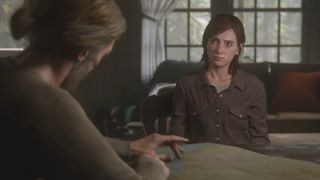
Abby's theater boss fight against Ellie perfectly encapsulates the pointless loss everyone's gone through at this point: Abby's friends are dead, Lev has lost Yara, the entire WLF and Seraphite groups have literally burned away. There's so much death by the time we get there that Jesse's end is barely a comma in the punctuation of events; all the result of selfish motives, intolerance, and inflexibility. And then, playing as Abby, you battle Ellie transformed into the perfect video game boss archetype – a self-destructive, self-centered monster that can only see what matters to them.
In the end
I did, in all honesty, think at that point Abby was going to kill Ellie on the first playthrough. My hands were shaking because it actually felt right after all the bloodshed. The cycle of violence was basically a cycle of blame. Joel shouldn't have killed the doctor; Abby shouldn't have killed Joel; Ellie shouldn't have killed Abby's friends; and so on. But it was never going to stop, and here Abby proves herself the better person – she walks right up to the point of no return, with a knife at Dina's throat, muttering 'good' as she finds out she's about to kill a pregnant woman… and steps back. She realizes the one thing Ellie later fails to grasp: 'it' never ends when you are 'it'.
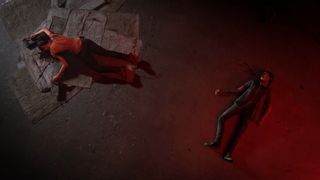
Post-fight, when Ellie is back with Dina, we almost, almost, see Ellie understand this. JJ, Dina and Jesse's baby and Ellie's adopted daughter, has been born and grown so we know a reasonable amount of time has passed. We also know that Ellie is very not okay, but is trying. Her art room captures this perfectly – it's full of pictures of Dina, JJ, the farmhouse, and shows the love that lives there. But, later, we also see the darkness still buried inside her, through a hidden notebook detailing her inability to process Joel's death. Something more obviously highlighted by the full PTSD flashback she experiences in the barn while bringing the sheep in. She is not doing well, but she's made it this far…
The cycle repeats
So when Tommy turns up with news about Abby, it feels like Ellie refusing him is her finally turning a corner. After everything that's happened she finally understands that only she can make it stop. For me, the true Last of Us 2 ending is when she goes to the guitar, plays it and it cuts to black. It's Joel's guitar, still in its case, and we know from her journal she hasn't even been able to talk about him yet. So getting that guitar out and playing, in response to the news about Abby, is a way of indirectly processing her feelings. It's interesting that the way she finds it - knocking it over and flinching at the noise - mirrors the onset of the PTSD attack in the barn. But here, the guitar is a source of comfort, not fear.
Sign up to the 12DOVE Newsletter
Weekly digests, tales from the communities you love, and more
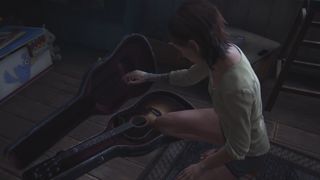
It would have been the perfect ending. All that meaningless bloodshed and pain underlined by simply walking away, highlighting the futility of it all by leaving it unanswered. To instead pursue the undefined possibility of what might happen if she stays and turns her back on it all. The very final epilogue cutscene, where we see Ellie confronting Joel in a flashback, is the perfect postscript here: when Ellie says, "I don't know if I can ever forgive you. But I'd like to try", she might as well be talking to herself about everything she's done in The Last of Us 2. It was all for nothing.
FIGHT
But, no, we had to walk all the way to Catalina Island to lose two fingers in a slapping match with a near-death Abby, just so Ellie could have the last word. It's not the first time Naughty Dog has missed the perfect opportunity to underline a message either. In the first game, when Ellie first meets David he mentions his people had been killed by a 'crazy man with a little girl'. For a moment it feels like this is going to address just how much a viewpoint can change who's an enemy and who's a friend. (Remember, from Abby's perspective she's just avenging her murdered father, pretty much the bread and butter of 'the hero's story'.)
It's clear this is a messy world post-collapse and Joel, by his own admission, has been 'on both sides', implying he's been the kind of person we see him kill throughout both games. At this point, around the fire with David, I fully expected the story to make me confront this, by making me meet people I'd been killing under different circumstances. But, no, they made David a cannibal pedophile and threw any moral ambiguity into the fire of the boss fight it generated.
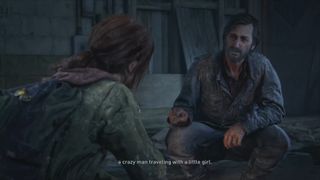
I don't really blame anyone for not sticking the landing with the Last of Us 2's ending. For all its focus on narrative and story development, Naughty Dog is still beholden to audience expectations. And for a big budget tentpole release like TLOU2, you have an audience that doesn't want expectations subverted too much, and the average video game audience expects a clear ending fight before the credits roll. People did not take well to Joel essentially facing the consequences of his actions as it was, so it was never going to be easy to work in an ending that draws a line under the pointlessness of everything, with traumatized and undefined ambiguity. That said, for me the game will always end when Ellie is back home with Dina. And I hope they're doing well.

I'm GamesRadar's Managing Editor for guides, which means I run GamesRadar's guides and tips content. I also write reviews, previews and features, largely about horror, action adventure, FPS and open world games. I previously worked on Kotaku, and the Official PlayStation Magazine and website.
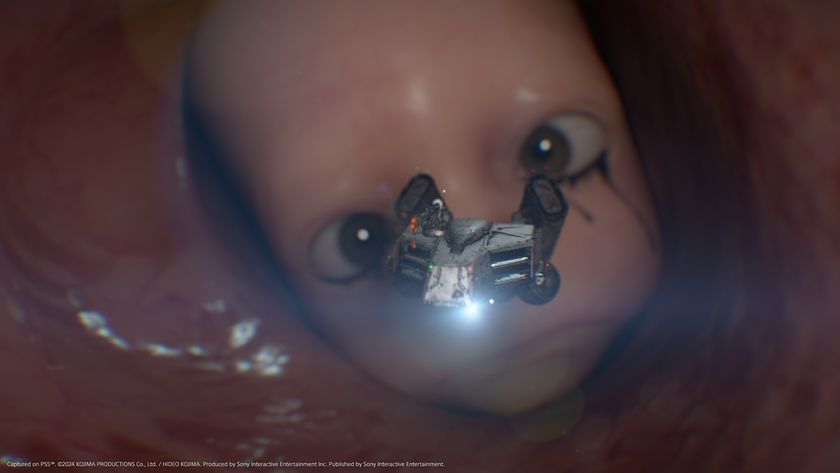
Death Stranding 2 draws ever closer as Hideo Kojima shares emotional behind-the-scenes update from "important scene" that wrapped recording for 6 voice actors at once
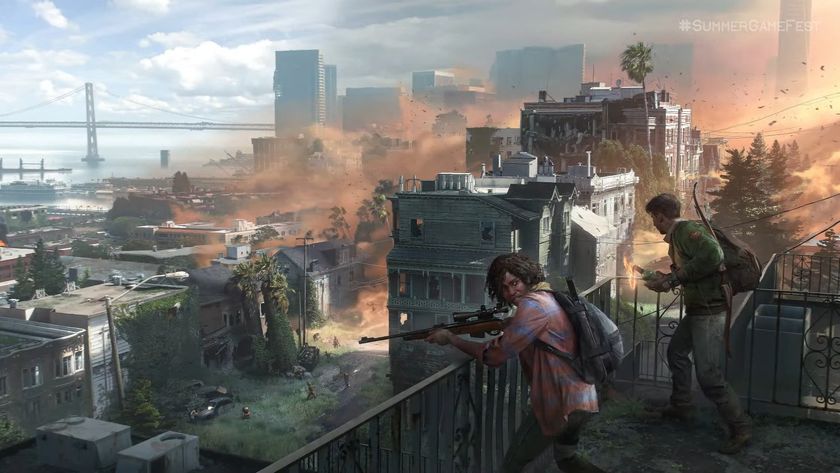
Cancelled The Last of Us Online game was "great," but former PlayStation exec says Naughty Dog had to scrap it after Bungie told them how much work it would be
Most Popular







